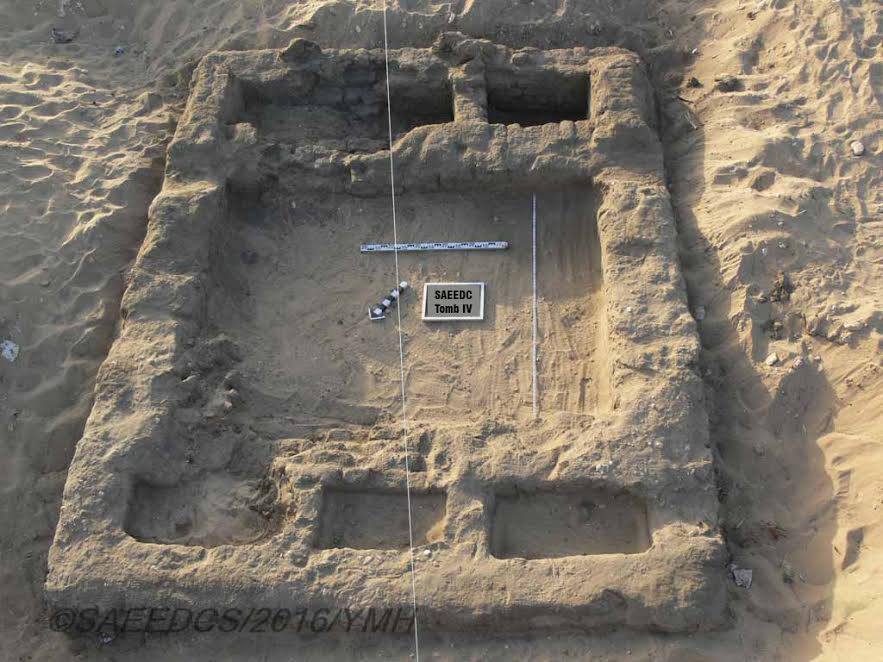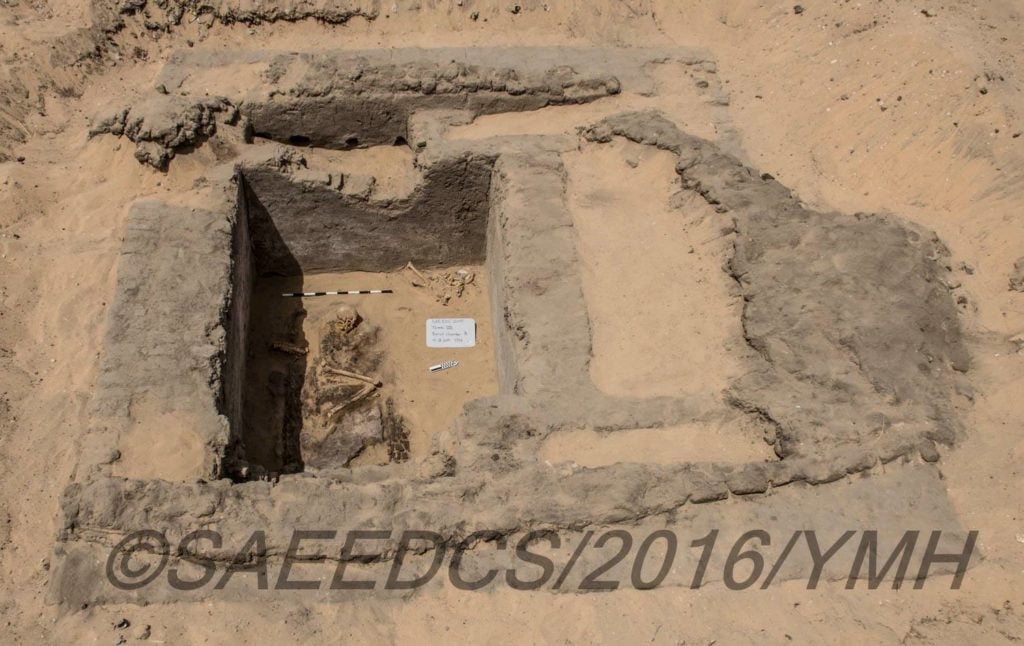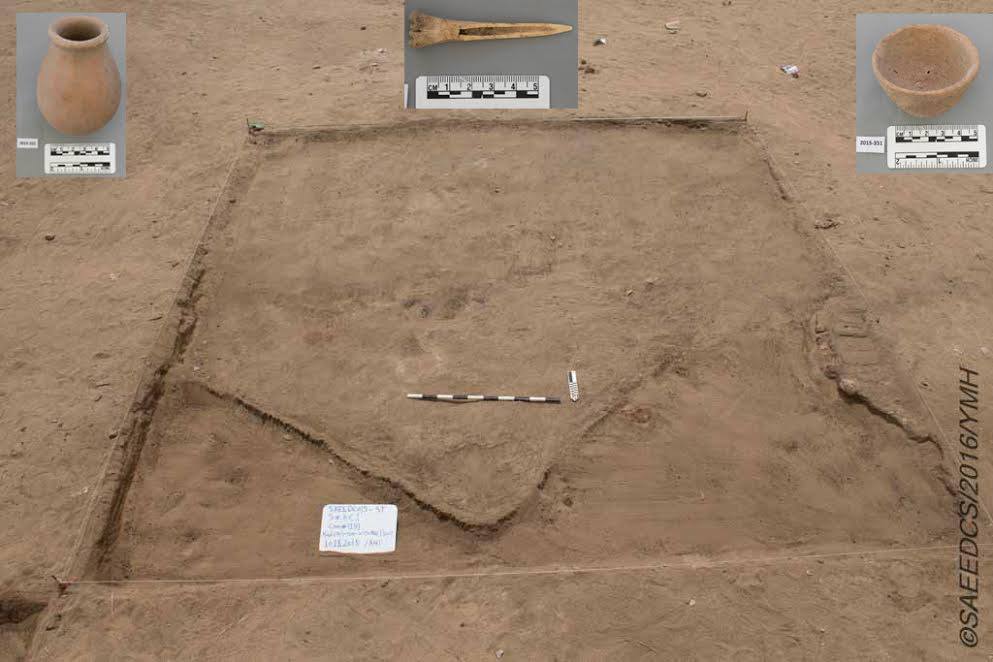Art World
Archaeologists Discover ‘Lost City’ Thought to be First Ancient Egyptian Capital
The discovery has unearthed buildings, tools, and noble graves.

The discovery has unearthed buildings, tools, and noble graves.

An ancient city containing houses, pottery, tools, and a necropolis has been unearthed in Egypt near Abydos and Temple of Seti the First.
Thought to be a lost ancient capital of Egypt dating back to 5,316 BC, the site has in fact lain lost for 7,000 years according to the Egyptian Ministry of Antiquities who announced the discovery last week.
The site, which contains 15 large graves thought to have been for nobles or royalty, complete with skeletal remains, is in Sohag, Upper Egypt. It is in the same region as the city of Luxor, the site of the ancient city of Waset and the site of the legendary Valley of the Kings and Valley of the Queens.

An ancient burial site. Courtesy the Egyptian Ministry of Culture
“About a mile behind where this material is said to be, we have the necropolis with royal tombs going from before history [sic] to the period where we start getting royal names, [and] we start getting identifiable kings,” Professor Chris Eyre, an Egyptologist based at the University of Liverpool, told the BBC.
“…this appears to be the town, the capital at the very beginning of Egyptian history,” he enthused.

A Site containing tools and pots. Courtesy the Egyptian Ministry of Culture
The ministry took to Facebook to share the news of the discovery by a team of Egyptian archaeologists. It is thought that the excavation will shed light on a little-known part of ancient Egyptian history as, along with the large grave sites, everyday items belonging to the city dwellers who would have built them have also been discovered.
As they have unearthed buildings, graves, tools, and homes this could provide invaluable clues about the lives and customs of ancient Egyptians going back even further than before.